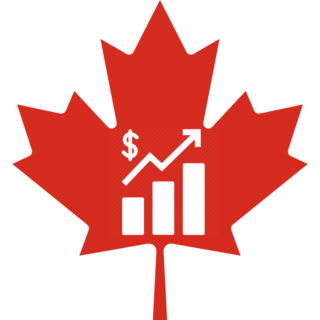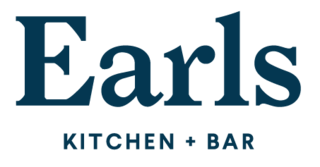Related Research Articles

A feedlot or feed yard is a type of animal feeding operation (AFO) which is used in intensive animal farming, notably beef cattle, but also swine, horses, sheep, turkeys, chickens or ducks, prior to slaughter. Large beef feedlots are called concentrated animal feeding operations (CAFO) in the United States and intensive livestock operations (ILOs) or confined feeding operations (CFO) in Canada. They may contain thousands of animals in an array of pens.

Wagyu is any of the four Japanese breeds of beef cattle.

There are different systems of feeding cattle in animal husbandry, which may have different advantages and disadvantages. Most cattle in the US have a fodder that is composed of at least some forage. In fact, most beef cattle are raised on pasture from birth in the spring until autumn. For pastured animals, grass is usually the forage that composes the majority of their diet. Cattle reared in feedlots are fed hay supplemented with grain, soy and other ingredients in order to increase the energy density of the feed. The debate is whether cattle should be raised on fodder primarily composed of grass or a concentrate. The issue is complicated by the political interests and confusion between labels such as "free range", "organic", or "natural". Cattle raised on a primarily foraged diet are termed grass-fed or pasture-raised; for example meat or milk may be called grass-fed beef or pasture-raised dairy. The term "pasture-raised" can lead to confusion with the term "free range", which does not describe exactly what the animals eat.
In the United States, a commodity checkoff program collects funds through a checkoff mechanism, sometimes called checkoff dollars, from producers of a particular agricultural commodity and uses these funds to promote and do research on that particular commodity. The organizations must promote their commodity in a generic way, without reference to a particular producer. Checkoff programs attempt to improve the market position of the covered commodity by expanding markets, increasing demand, and developing new uses and markets. Checkoff programs amount to $750 million per year.

Canada is one of the largest agricultural producers and exporters in the world. As with other developed nations, the proportion of the population and GDP devoted to agriculture fell dramatically over the 20th century but it remains an important element of the Canadian economy. A wide range of agriculture is practised in Canada, from sprawling wheat fields of the prairies to summer produce of the Okanagan valley. In the federal government, overview of Canadian agriculture is the responsibility of the Department of Agriculture and Agri-Food.

National Cattlemen's Beef Association (NCBA) is an American trade association and lobbying group working for the American beef producers and consumers in the United States.

Earls is a family owned premium casual dining chain that operates a total of 68 restaurants in Canada and the United States. Their head office is in Vancouver, British Columbia, Canada.
Canadian import duties is the amount of tax or tariff paid while importing goods into Canada. The Canada Border Services Agency collects the tariff on all imported goods.
The Farm Products Council of Canada is a Canadian government agency established in 1972 that is responsible for promoting efficient and competitive agriculture. It oversees the national Supply management (Canada) agencies for eggs, poultry, and chicken. It is thus the analogue of the Canadian Dairy Commission for those products. The Council reports to Parliament through the Minister of Agriculture and Agri-Food.
The economy of Saskatchewan has been associated with agriculture resulting in the moniker "Bread Basket of Canada" and Bread Basket of the World. According to the Government of Saskatchewan, approximately 95% of all items produced in Saskatchewan, depend on the basic resources available within the province. Various grains, livestock, oil and gas, potash, uranium, wood and their spin off industries fuel the economy.
The Agriculture and Horticulture Development Board (AHDB) is a levy board funded by farmers and growers and some other parts of the supply chain. It aims to enhance farm business efficiency and competitiveness in the areas of: pig, beef and lamb production in England; milk, potatoes and horticulture in Great Britain; and cereals and oilseeds in the UK. It undertakes research and development and farm-level knowledge transfer activity, provides essential market information to improve supply chain transparency and undertakes marketing promotion activities to help stimulate demand and to develop export markets. These are activities which most individual farm businesses could not afford to do themselves.

Meat & Livestock Australia (M&LA) is an independent company which regulates standards for meat and livestock management in Australian and international markets. Headquartered in North Sydney, Australia; M&LA works closely with the Australian government, and the meat and livestock industries. As a multi-faceted authority, M&LA has numerous roles across the financial, public and research sectors. The M&LA corporate group conducts research and offers marketing services to meat producers, government bodies and market analysts alike. Forums and events are also run by M&LA aim to provide producers with the opportunity to engage with other participants in the supply chain.
The Canadian Cattlemen's Association is an advocacy group promoting the interests of cow-calf producers, feedlots, and packers in the Canadian beef industry. Throughout its history, the CCA has worked to improve market access for Canadian beef producers and in lobbying efforts with the Canadian government.
Karen Beauchemin is a federal scientist in Canada who is recognized as an international authority on methane emissions and ruminant nutrition. Her research helps develop farming techniques that improve how we raise cattle for meat and milk, while reducing the environmental impacts of livestock production.
Karen Schwartzkopf-Genswein is a Canadian federal scientist with expertise in farm animal behaviour, health, and welfare. She works for Agriculture and Agri-Food Canada at the Lethbridge Research and Development Centre. She is known for her foundational research on assessing welfare in beef cattle including the impacts of long-distance transportation, developing producer-friendly pain mitigation strategies for castration and other painful procedures, and assessing and mitigating lameness in feedlot cattle that has informed regulations and guidelines for the commercial beef cattle industry in North America. Her research results and expertise have guided the industry and led to updated Canadian Transport Regulations and Canadian Beef Codes of Practice. In addition to her research, Schwartzkopf-Genswein provides training and consultation on livestock farming practices.
Johanns v. Livestock Marketing Association, 544 U.S. 550 (2005), is a First Amendment case of the Supreme Court of the United States. At issue was whether a beef producer could be compelled to contribute to beef industry advertising.

Travis Toews is a Canadian politician elected in the 2019 Alberta general election to represent the electoral district of Grande Prairie-Wapiti in the 30th Alberta Legislature. He was appointed as Minister of Finance of Alberta and President of the Treasury Board on April 30, 2019 by Alberta Premier Jason Kenney.
Jo Ann Smith was inducted into the National Cowgirl Museum and Hall of Fame in 2015. She is the first woman to become the president of the National Cattlemen's Beef Association.
Canada Beef is a trade and marketing organization. The organization was formerly known as the Beef Information Centre.
References
- ↑ "Canadian Beef Centre of Excellence director to retire". Glacier FarmMedia Limited Partnership. Canadian Cattlemen The Beef Magazine. 13 February 2017.
- 1 2 3 4 5 6 "Beef agency elects board for the coming year". Alberta Farmer Express. Glacier FarmMedia Limited Partnership. 12 September 2017.
- 1 2 "ABOUT US". CDCRMDPA. Retrieved 12 May 2020.
- 1 2 "2016 Canadian Beef Industry Conference Event Program". Grey Eagle Resort and Casino, Calgary, Alberta. 9–11 August 2016. p. 56.
- ↑ Andres, Francis. "Canada Beef". Canadian Cattlemen's Association. Retrieved 11 June 2020.
As the marketing division of the Canadian Beef Cattle Research, Market Development and Promotion Agency, Canada Beef is the cattle producer-funded and run organization responsible for domestic and international beef and veal market development. It has 28 staff in offices in Canada, Mexico, Japan, China, and Taiwan.
- ↑ "HOME» ABOUT US» FUNDING» NATIONAL CHECK-OFF". Beef Cattle Research Council. Retrieved 11 June 2020.
- ↑ "Canadian Beef Research and Technology Transfer Strategy 2018 - 2023" (PDF). BCRC.
- ↑ "Major New Canadian Beef Industry Conference Promising Dynamic Workskhops". Blackburn News. 8 June 2016.
- ↑ "Canadian Beef Centre of Excellence, Alberta". Verdict Media Limited. Food Processing Technology. March 2015.
- 1 2 "Manitoba's Heinz Reimer To Lead Canadian Beef Check-off Agency". Golden West Broadcasting. Pembina Valley Online.
AGM was held in conjunction with the Canadian Beef Industry Conference this week in London, Ontario
- ↑ "SCA'S PLAN REGULATIONS". Saskatchewan Cattlemen's Association. Retrieved 11 June 2020.
- 1 2 "Canadian Beef Cattle Research, Market Development and Promotion Agency Proclamation (SOR/2002-48)". FAO. FAOLEX Database. Retrieved 11 June 2020.
- ↑ "Notes for Website on refundable (2019) : ABP Service Charge Information and Refund Request Instructions" (PDF). Alberta Beef Producers. 2019. Retrieved 11 June 2020.